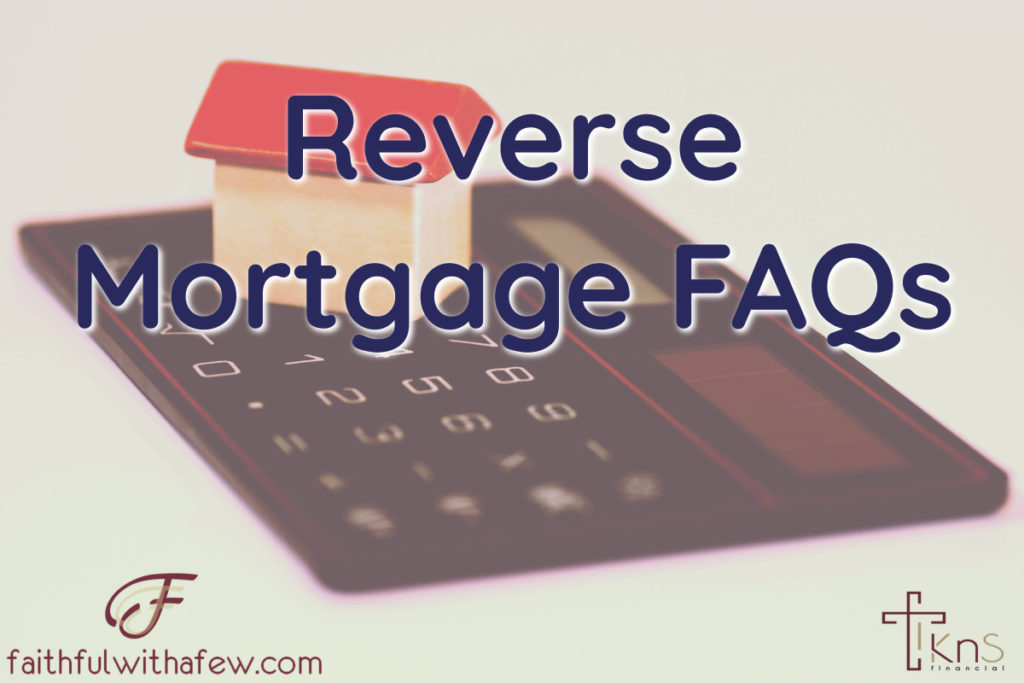Reverse Mortgage FAQs
As more and more people are choosing reverse mortgages, there are several questions which come up. While many of these questions will be specific to your case, there are others which apply to almost every reverse mortgage application out there. With that in mind, here are the more important reverse mortgage faqs you should ask.
Reverse Mortgage Faqs
1) What a Reverse Mortgage?
Reverse mortgages are loans for seniors which allow them to tap into the equity they have built up in their homes. Unlike traditional mortgages or home equity lines, the borrower does not need to make a monthly payment. Instead, all they need to do is to pay the property taxes, insurance, and utility costs for the home.

Another condition of a reverse mortgage is that it must be the borrower’s primary residence. In addition, these loans are only made available to seniors over the age of 62. Now, these mortgages are available across the country, but you probably want to find a local and reputable lender to walk you through the application process.
2) Who Owns the House?
Like traditional mortgages the home is still owned by those residing there – the bank just places a lien on the property. However, you will want to read the terms of the loan agreement, especially the amortization schedule when the loan extends to year 10 or 15, or longer.
3) Why Would Someone Get a Reverse Mortgage?
For many people, their home is the most valuable asset they own. In addition, today’s seniors have had to live through some of the most tumultuous economic periods in our history.
Granted, when times were good, they were very good. However, when times were bad, they were very bad. In addition, there is the changing employment picture. As such, many seniors lack the savings needed to enjoy their retirement.
Enter reverse mortgages, which have become a popular option to help seniors make ends meet during their retirement. Not only do these mortgages help to freeze monthly mortgage payment, but they also give the borrower the ability to access the equity they have built up in their homes.
4) What Are the Qualifications?
First, you must be over the age of 62. In addition, you will need to show that have the income to pay your homeowner’s insurance, property taxes, and utilities. Many reverse mortgages will also require that you will need to properly maintain the house.
Lastly, a reverse mortgage is only for your primary residence. While some private-label reverse mortgages might cover vacation homes, the Federal Housing Administration (FHA) variety of reverse mortgages must be for where you live.
5) What are the Risks?
As most reverse mortgages are insured by the FHA, then tend to be safe. You want to make sure the loan you are getting complies with the FHA’s rules.
If not, then you will want to talk to another lender.
6) Will My Property Qualify?
The list of eligible properties includes everything from single-family homes, multi-family homes (however, the borrower must live in one of the units), as well as certain condos and manufactured homes.
If you are not sure if your property will qualify, then you need to talk to your loan counselor.
7) How Much Can I Borrow?
The answer to this question largely depends on where you live. However, the national loan limit was raised this year to $636,150.
Keep in mind that just because the loan limit is set at this level does not mean you can borrow the entire amount. Under the rules of reverse mortgages, you will need to pay off your existing loan and generally there is a limit based on the home’s actual value.
8) Can the Bank Foreclose?
As long as you follow the terms of the loan, then you won’t have to be concerned about foreclosure risk.
Just remember you need to ensure the home remains registered as your primary residence and that you will need to keep up the payments on taxes, insurance, and utilities.
9) How is a Reverse Mortgage Repaid?
You loan will come due as soon as you no longer live in the home. As such, you will need to plan for repayment at this time.
The way it works is simple. You either sell the home and the lender will be repaid at closing, or you will need to notify the bank of your change of address and then make plans to repay the loan at that time.
The post Reverse Mortgage FAQs appeared first on Faithful with a Few.
SOURCE: Faithful with a Few – Read entire story here.